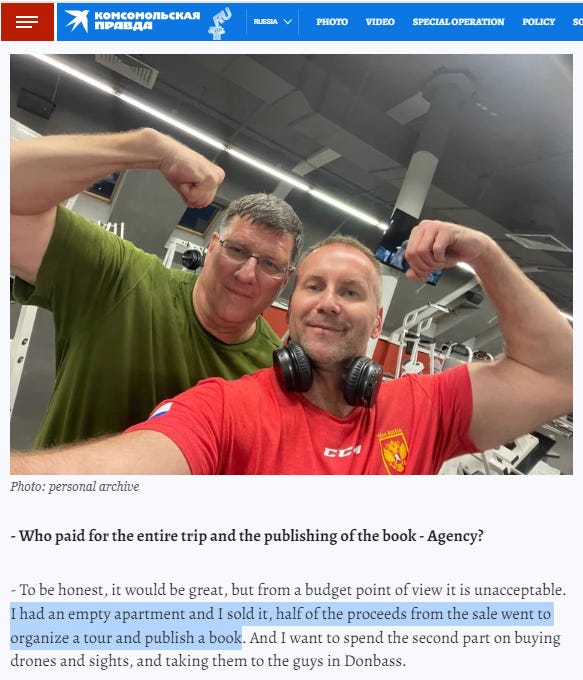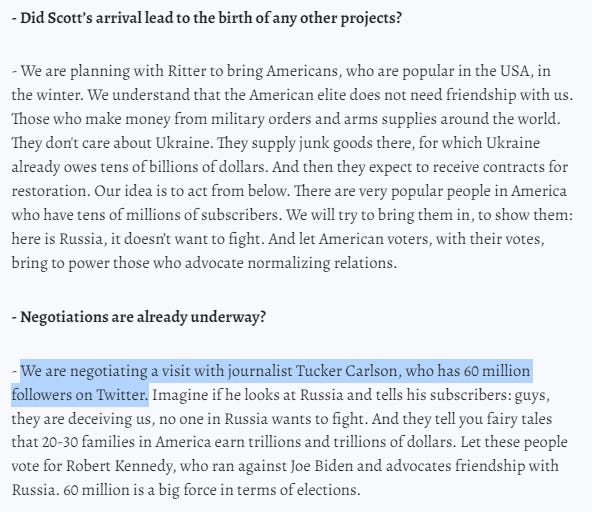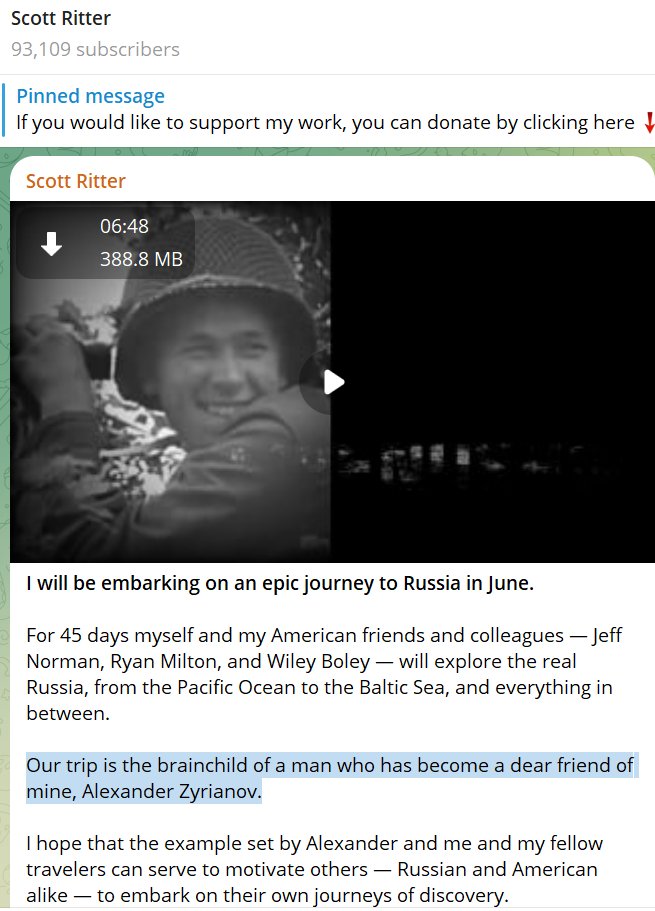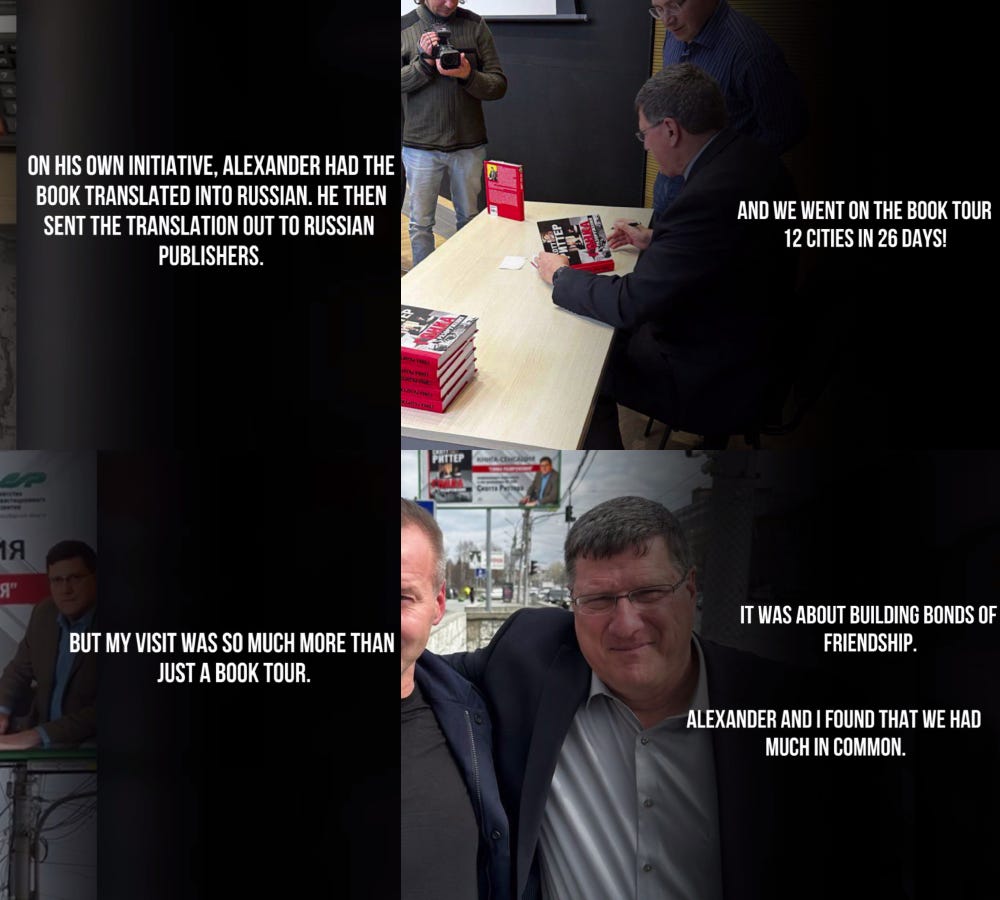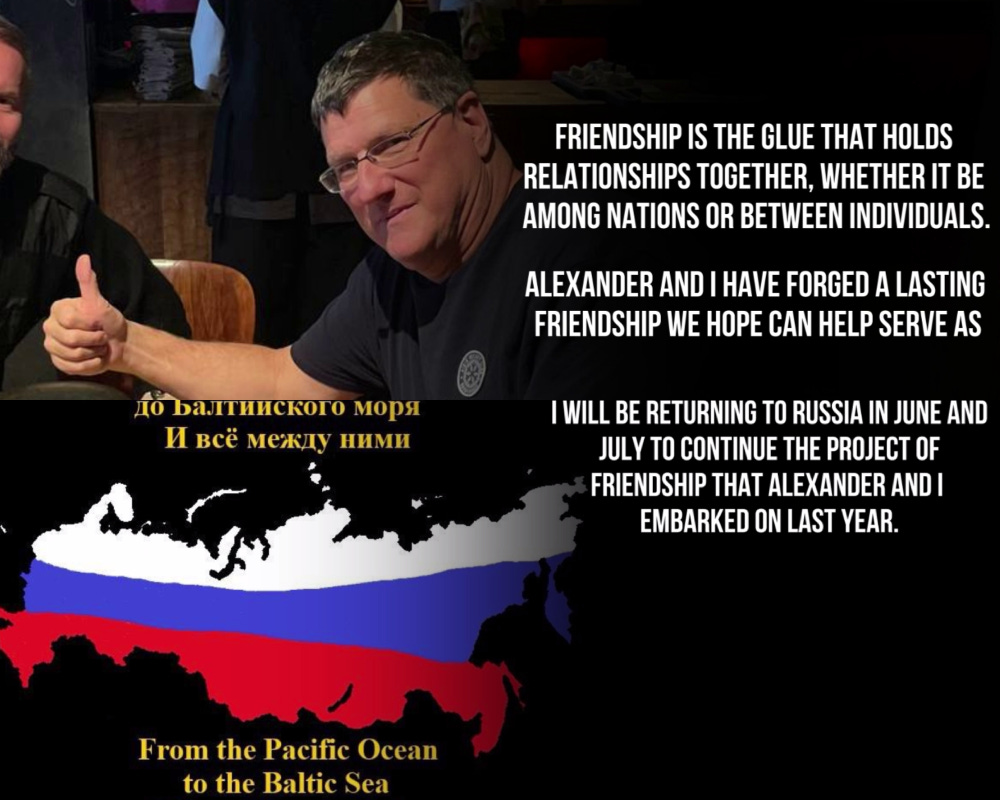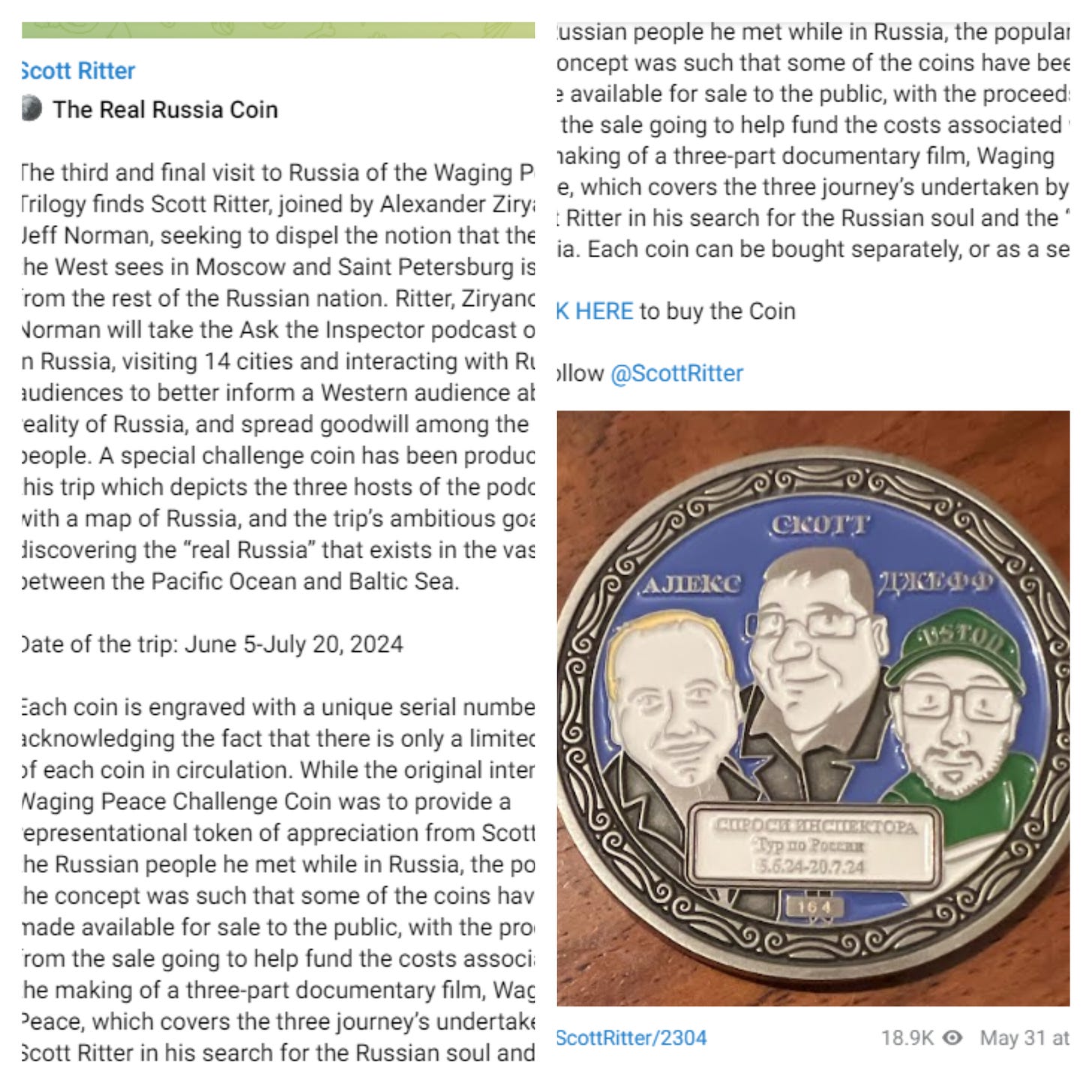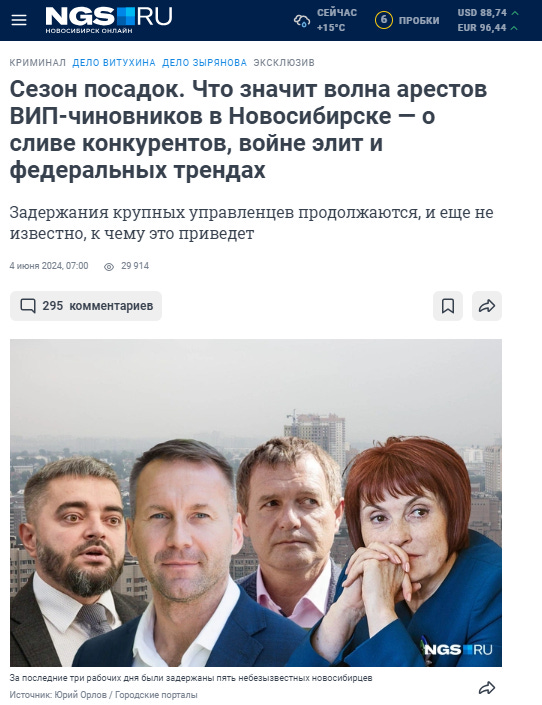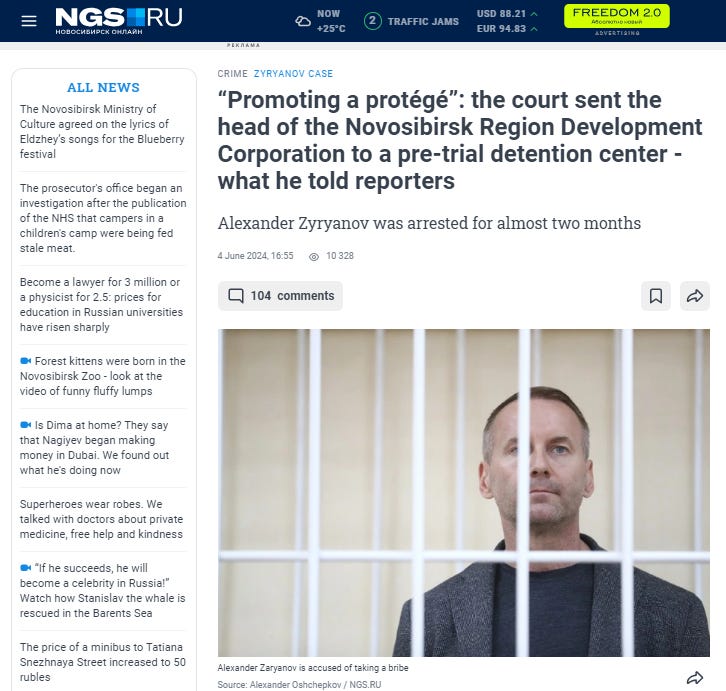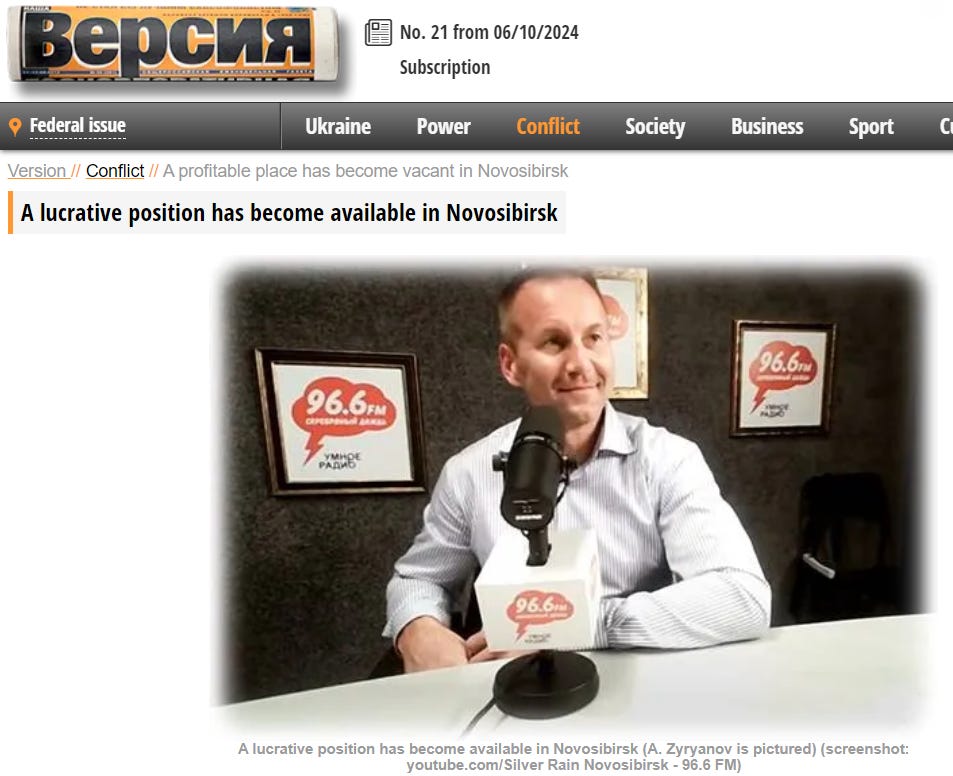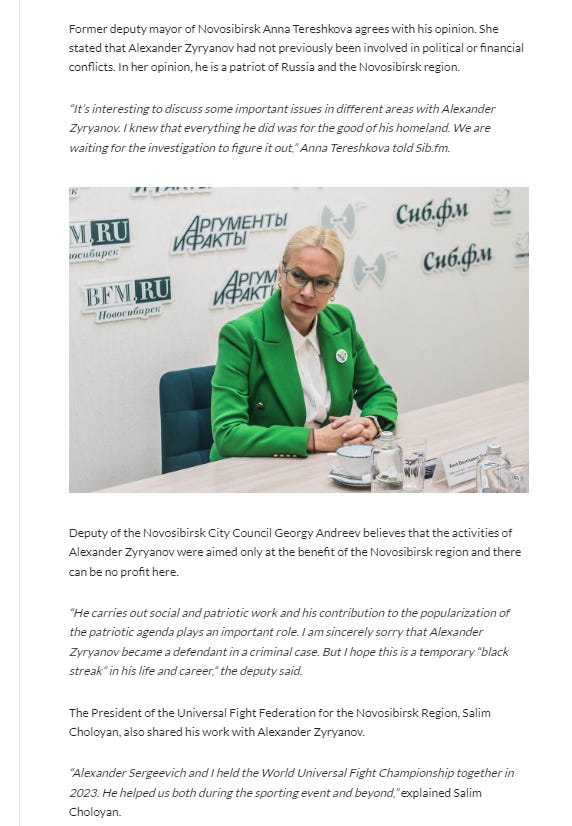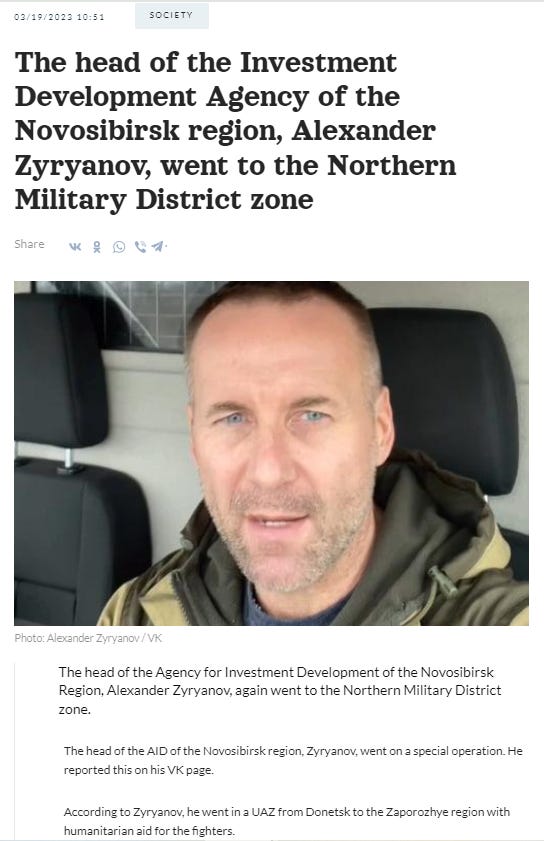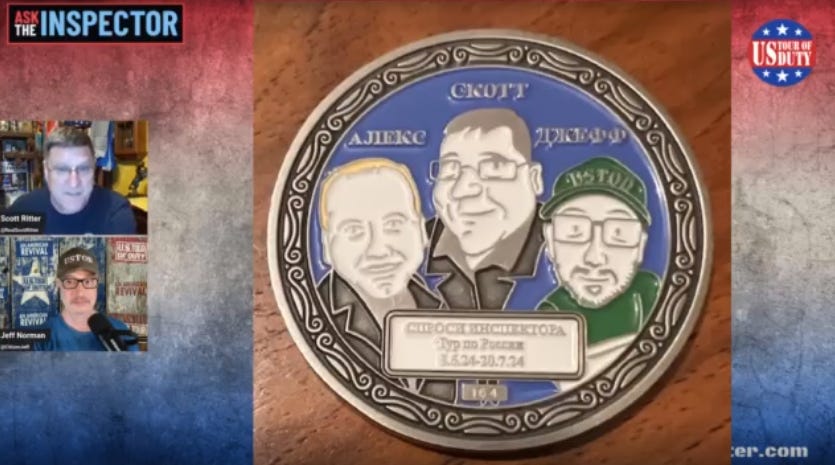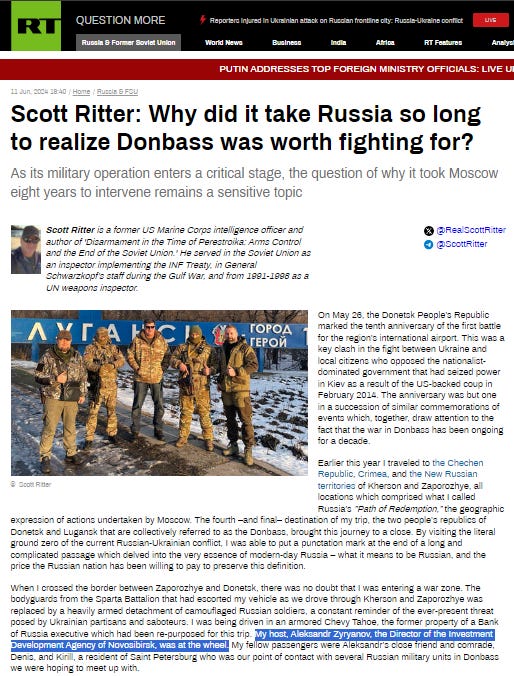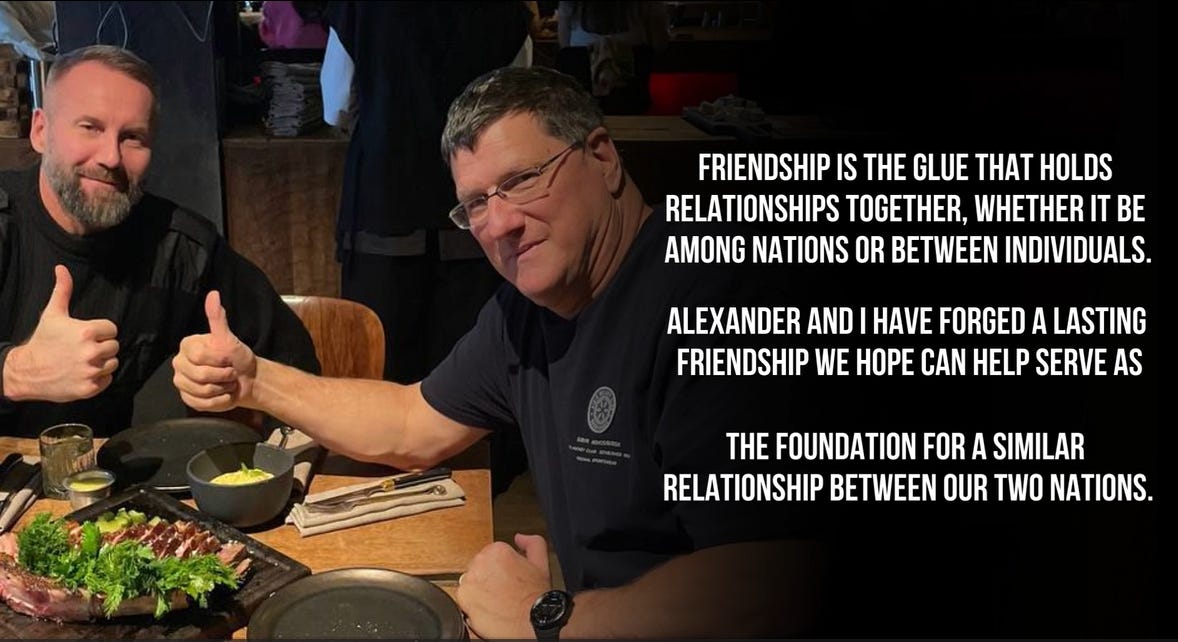By Noah Robertson, Defense News, 5/21/24
The real story here is why the western expert class (exemplified by the numbskull Radakin quoted in the article) is so surprised at Russia’s resilience and resourcefulness. There should be accountability for that kind of profound incompetence and solipsism in relation to the world’s other nuclear superpower. – Natylie
The Pentagon in March put a price tag on Russia’s invasion of Ukraine.
Speaking in the officer’s club at Ramstein Air Base in Germany, U.S. Defense Secretary Lloyd Austin read a list of costs the Kremlin had tallied over two years: More than 315,000 troops killed or wounded. Over $211 billion spent. Some 20 medium or large ships damaged or sunk in the Black Sea.
“Russia has paid a staggering cost for [Russian President Vladimir] Putin’s imperial dreams,” Austin said, speaking before a meeting of countries that gather each month in support of Ukraine.
By April, though, Austin’s tone had changed.
At a news conference, Austin and Gen. CQ Brown, America’s top military officer, again detailed Russia’s losses. But they added another trend: Russia’s recovery.
“Russia has ramped up its production,” Austin said. “All of their defense industry really answers directly to the state, so it’s easier for them to do that a bit quicker.”
Brown put it more simply: “Russia has aggressively reconstituted its military force.”
Coming a month apart, the two sets of comments show a distinct change in how the U.S. views Russia’s military. While American officials have long detailed the costs of Moscow’s invasion for its armed forces and its economy, in the last two months they’ve started to acknowledge Russia is recovering faster than the U.S. expected.
The pace matters for Ukraine and those supporting it — in particular the U.S. government, which approved $48 billion more in Ukraine-related security aid this April. American officials say they expect that bill to sustain Kyiv for another year. But if Moscow’s recovery is a moving target, that could change.
Indeed, if the Kremlin keeps rebuilding its forces faster than expected, it could present a longer-term and perhaps costlier problem for the NATO alliance. The U.S. government’s National Defense Strategy calls Russia an “acute threat,” second to the “pacing challenge” of China.
But Moscow’s own capacity may change that.
“They are doing better than we would have thought,” a senior U.S. defense official told Defense News on the condition of anonymity in order to discuss sensitive intelligence.
Three ways to rebuild
When Russia began its full-scale invasion of Ukraine in February 2022, things quickly fell apart. Enduring images of the first two months illustrated Russian frailty by showing rotting tires on armored vehicles and a convoy just outside of Kyiv that became a traffic jam.
This prompted self-reflection in the West: If Russia’s military wasn’t as powerful as defense planners had thought before the war, how quickly could it recover?
Even scientific methods to measure an opposing military are inexact, partly because those easiest to measure, such as personnel and equipment, might not be the most important given factors like corruption and morale. But estimates for how long Russia would take to reconstitute mostly fell into the five- to 10-year range, depending on how Western sanctions worked and the Kremlin’s own goals.
“There’s no question — and I think [there’s] unanimity in the intelligence community — it will take years for the Russians to build back up their ground forces,” Avril Haines, the U.S. director of national intelligence, said in March 2023.
Her comments came amid the annual churn of officials visiting Capitol Hill from winter to early spring. Around the same time this year, Gen. Christopher Cavoli, America’s top military officer in Europe, had a second opinion.
“The overall message I would give you is they’ve grown back to what they were before,” Cavoli said. “They’ve got some gaps that have been produced by this war, but their overall capacity is very significant still. And they intend to make it go higher.”
To some extent, the officials were discussing different elements of Russia’s force. When Haines testified last year, she was joined by the chief of the Defense Intelligence Agency at the time, Lt. Gen. Scott Berrier, who said Russia was five to 10 years away from reconstituting. By that, Berrier meant it would take Russia up to a decade to rebuild the high-end equipment lost earlier in the war.
Cavoli, on the other hand, was discussing the overall size of Russia’s military.
Still, European and American defense officials, along with experts on the Russian military, told Defense News the Kremlin’s force is reconstituting faster than expected. They gave three main reasons why.
The first is the resilience of Moscow’s defense industry.
During the war, Russia has almost tripled its defense budget, according to Richard Connolly, an expert on the country’s economy at the London-based Royal United Services Institute think tank. Russia is set to spend somewhere between $130 billion and $140 billion on defense in 2024, which is about 6% of gross domestic product and a third of the government’s overall budget, Connolly approximated.
But because costs and wages are lower in Russia than in high-income countries, like many in NATO, the Kremlin’s defense fund buys much more than it would in the United States. When that conversion is taken into account, Russia’s 2024 defense budget falls between $360 billion to $390 billion, Connolly estimated.
The spending trend itself has raised salaries. Working in the defense industry was once a middling career in Russia; it’s now lucrative and attracting more workers. Based on official Russian figures, which Connolly noted may be inflated, the number of people working in the defense industry rose 20% during the war, from 2.5 million to about 3 million now.
The funds have also gone toward procuring military hardware. Connolly estimates this share of the defense budget probably doubled during the war, helping Russia replace lost equipment.
Connolly said he doubts the state of Russia’s economy will factor into how the war ends. Moscow has a cadre of policy wonks guiding its country through sanctions, he noted, and they have lots of practice doing so. In fact, Putin recently replaced a general at the helm of the Defence Ministry with an economist.
The second reason is Russia’s ability to dodge financial penalties.
In 2022, the Biden administration and European partners passed a raft of sanctions meant to sink the Russian economy. These ranged from banning the sale of high-tech materials, such as microchips, to a price cap on Russian oil sales.
These haven’t worked, multiple analysts told Defense News. That’s in large part because Moscow has been able to reroute its supply lines through friendly countries.
Chief among those partners is China. From 2022 to 2023, trade between Russia and China grew more than 26%, hitting an all-time high of $240 billion, according to a report by the Washington-based Center for Strategic and International Studies think tank.
Beijing largely avoided sending weapons directly. Instead, Chinese companies became a vital supplier of the items Russia needed to build weapons itself — such as microchips and small electronics.
This leads to the third point: Russia’s reconstitution has relied on surprising levels of support from other U.S. adversaries, who, unlike China, have directly provided military aid to Russia.
Since October, North Korea has sent Russia about 10,000 shipping containers, which could include up to 3 million artillery rounds, according to U.S. government figures. Russia has fired dozens of North Korean ballistic missiles since last fall, an American diplomat told the U.N. in March.
Iran has also provided materiel. Specifically, it’s sent a somewhat plodding attack drone known in Tehran as the Shahed-136 and in Moscow as the Geran-2. Russia has deployed swarms of these to overwhelm Ukraine’s air defenses, firing more than 3,700 Shahed drones, of which there are several variants, during the war as of December, according to the Ukrainian government.
When Cavoli visited Capitol Hill in April, he came with his own list of numbers: Russia’s GDP grew 3% in 2023, despite predictions it would shrink. It can add 1,200 tanks and build at least 3 million artillery rounds or rockets each year. And through a deal with Iran, Russia plans to locally build 6,000 drones by next summer.
A February report by the RUSI think tank, cited by the unnamed senior U.S. defense official, who declined to offer a full set of American figures, said Russia can produce 3,000 armored vehicles per year and had surged its inventory of precision missiles.
Its force inside Ukraine has also grown.
Last year, Russia increased the age limit for the draft from 27 to 30, which the U.S. estimates will add a pool of 2 million eligible conscripts.
And the Kremlin set a goal to recruit more than 400,000 troops — part of a larger target to grow the military to 1.5 million service members by 2026. To do so, Russia offered lavish signing bonuses and salaries, which in some areas are more than five times the average paycheck, according to an Estonian intelligence report.
It’s unclear whether Moscow already met this goal. But Cavoli said in April that Russia was recruiting about 30,000 new soldiers per month and had surged its front-line end strength to 470,000, larger than the Russian army before the war.
Is the military growth sustainable?
In early May, Adm. Tony Radakin, the professional head of the U.K. armed forces, sat down with reporters in the British Embassy in Washington. Speaking over cookies and tea, he discussed Russia’s recent advances.
The Russian military was making marginal progress, but still relying on Soviet-era inventories to restock and struggling to train its newest recruits, Radakin said. The force was on pace to suffer 500,000 casualties by the end of June, he estimated.
“That is an astonishing loss of life and Russian nationhood that has been wasted for such modest gains,” he said.
But a day after he spoke, Russia began a new offensive near Kharkiv, Ukraine’s second-largest city.
Such attacks raise another question: How long can Russia sustain its operations?
Aside from drones, much of its wartime output has relied on vast warehouses of Soviet-era weapons. To reconstitute materiel lost in battle, Russia is emptying these, repairing the equipment and then sending it all to the front lines — one reason the estimates of Russia’s industrial capacity vary so widely.
“A lot of people are reading some headline figures and then assuming that it’s all new production,” Connolly said.
As an example, he pointed to main battle tanks. Before the war, he said, Russia was delivering about 150 to 250 a year. But of those, he assessed, about 20 to 30 would have been new, while the rest were heavily refurbished.
So while Cavoli’s written testimony in April said Russia could make up to 1,200 tanks per year, Connolly estimated that, at a maximum, 400 of those are new or heavily refurbished. Everything else, he said, is pulled from storage, lightly repaired and then deployed.
The RUSI report from February estimated about 80% of Russia’s wartime production was actually refurbished, aging materiel.
“Of course inventory becomes very important: What was that number to begin with, and what was the state of it?” Connolly said. “Truth is, nobody knows.”
European and American defense officials made the same point. Russia has vast stocks, but they’re not unlimited, which could be why it relies on partners like Iran, Belarus and North Korea.
“When you are doing the reform and you are trying to enlarge your military, you are probably losing the quality,” a defense official from a NATO member state told Defense News, speaking on the condition of anonymity to discuss the sensitive topic.
That said, the war in Ukraine has been more about attrition than precision, the official said. In other words, it may not matter much whether Russian soldiers are using a 50-year-old T-72 tank or a new one.
The same questions of sustainability also apply to Ukraine, which has a smaller defense industry, an unreliable source of support in America, and less eligible soldiers. Earlier this year, Kyiv lowered the draft age from 27 to 25 to regenerate its armed forces.
Sitting in the British Embassy, Radakin said it would probably take about a decade for Russia to seriously threaten NATO again. Despite Russia’s refreshed troop levels, its invasion of Ukraine will eventually collapse, though he would not guess at that timeline.
“I don’t think it is sustainable,” he said. “But I don’t know at which point it becomes unsustainable.”
